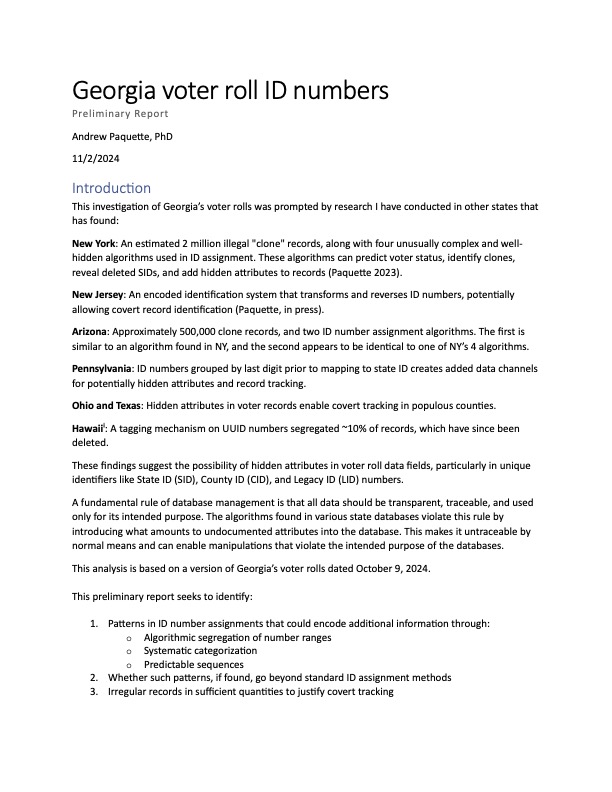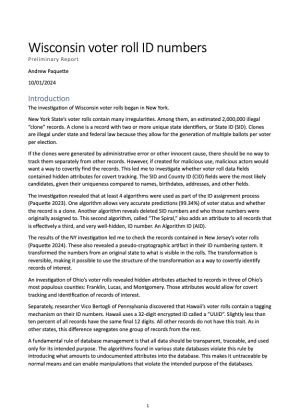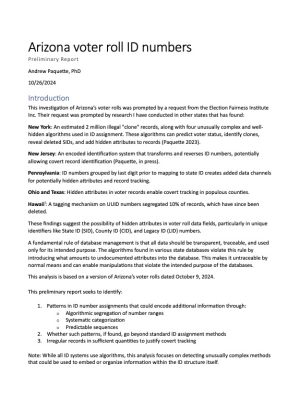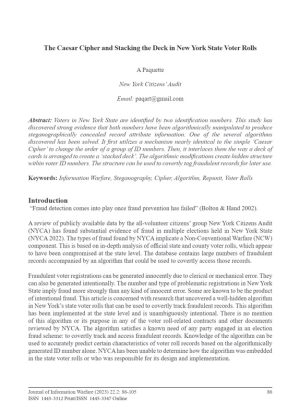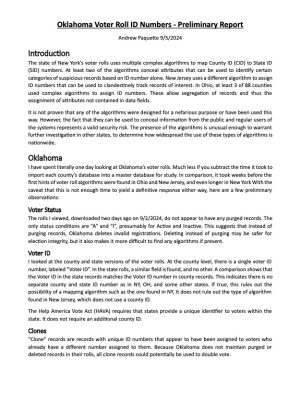Author: Andrew Paquette, PhD
An analysis of Georgia’s voter rolls reveals 489,560 cloned records (6.78% of all registrations) and a complex ID assignment system that artificially segments voter ID numbers across multiple ranges. Unlike standard sequential ID allocation, Georgia’s system exhibits overlapping ID ranges, stair-step progressions, and systematic distribution patterns across its 159 counties. These patterns suggest the use of a sophisticated algorithm to manage voter records in a way that obscures transparency and could facilitate covert tracking or categorization. Additionally, 87.5% of identified clones remain active, meaning duplicate voter records are still in use, a direct violation of election integrity laws.
The unnecessary complexity of Georgia’s voter ID system mirrors issues found in other states with high numbers of duplicate registrations. This raises concerns about hidden attributes and systematic record management that could impact election security. Immediate corrective action is needed, including an investigation into the origins and purpose of the algorithm, removal of cloned records, and enforcement of proper voter roll maintenance. Retaining excessive, unnecessary voter records introduces risk, and a full audit is warranted to determine the extent of potential misuse.
